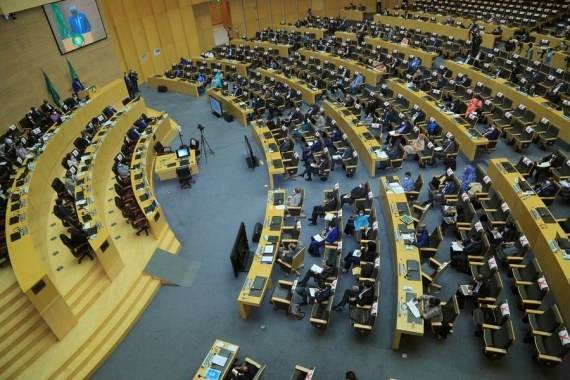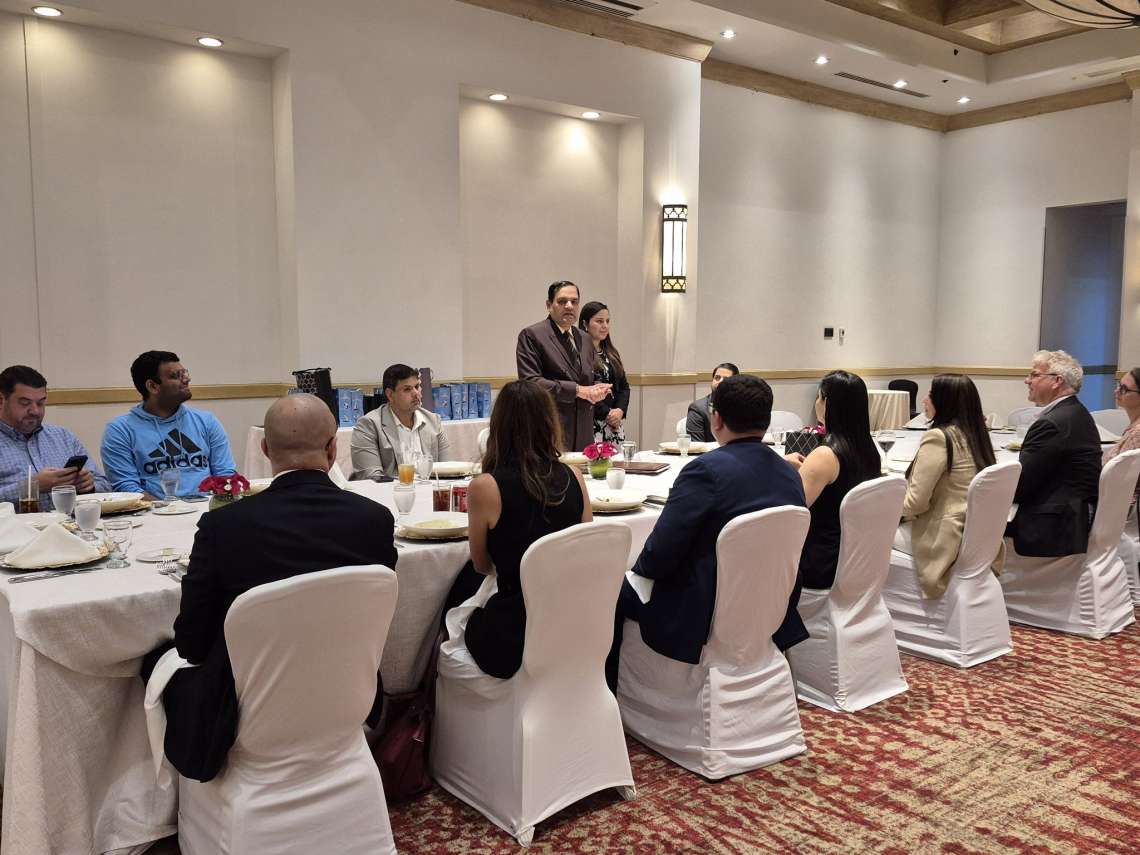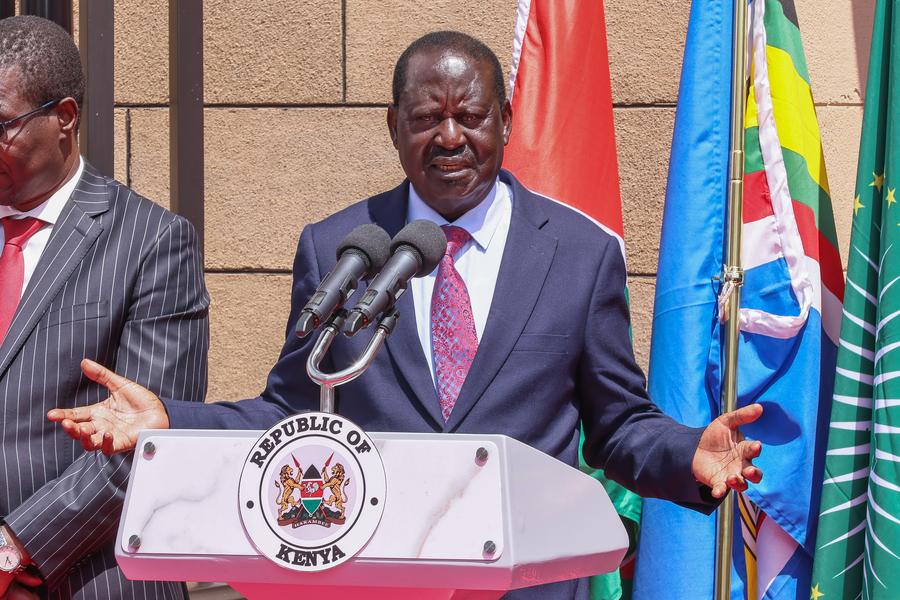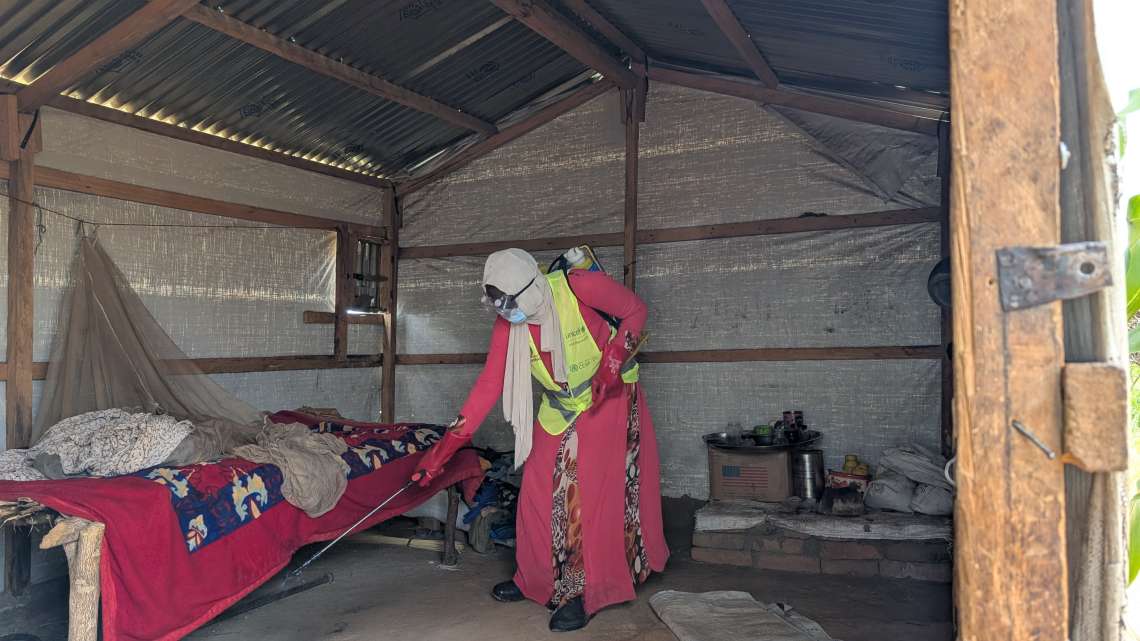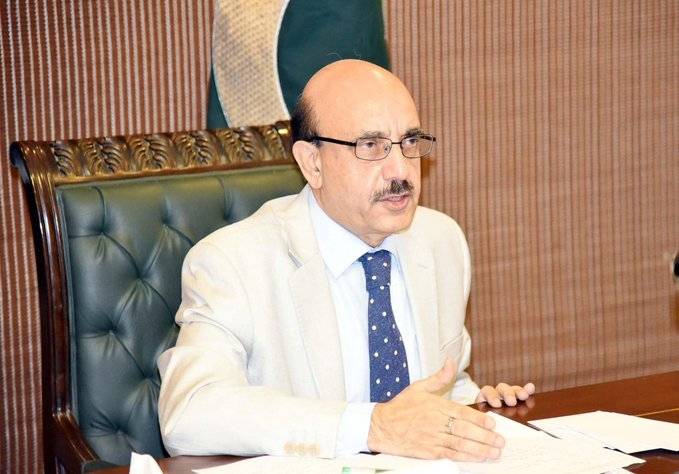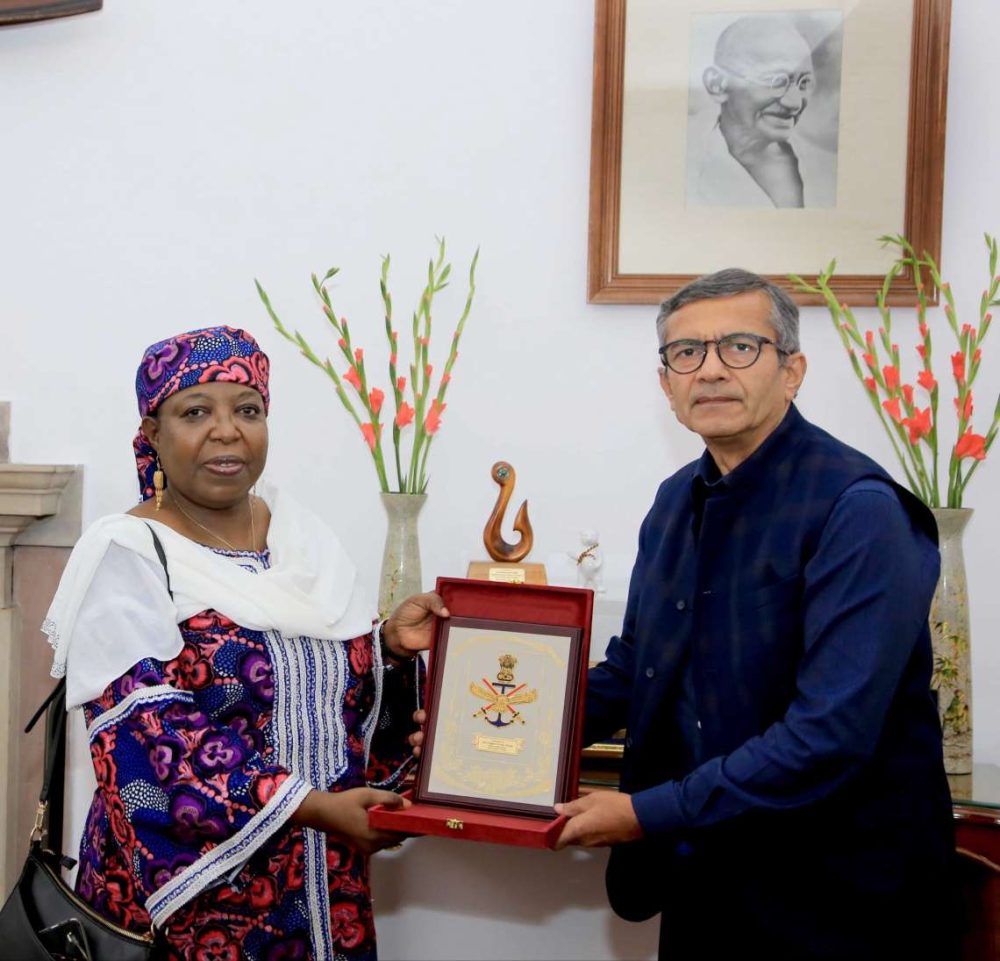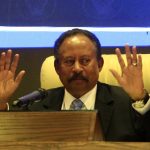The 35th Ordinary Session of the African Union (AU) Assembly kicked off in Addis Ababa, as African leaders met physically for the first time since the onset of the ongoing Covid-19 pandemic…reports Asian Lite News
The AU Assembly session began on Saturday. Issues such as rebuilding Africa from the brunt of the devastating impacts of the Covid-19 pandemic, ensuring continental peace and security, socio-economic development, as well as representation of Africa in multilateral international institutions took centrestage at the AU Assembly Summit.
The two-day summit, slated from February 5 to 6 at the headquarters of the AU in the Ethiopian capital Addis Ababa, is being held under the theme of the year “Building Resilience in Nutrition on the African Continent: Accelerate the Human Capital, Social and Economic Development”.
Chairperson of the AU Commission, Moussa Faki Mahamat, told African leaders the need to exert concerted efforts towards effectively responding to challenges such as Covid-19, expansion of terrorism and insecurity while strengthening and preserving multilateralism.
“The Covid-19 pandemic has challenged mankind deep down in its conscience. We cannot, when we meet physically for the first time since the outbreak of the pandemic, avoid asking ourselves, about ourselves, our doubts, anxieties, concerns for our organisation and our Africa,” he said.
Mahamat said the Covid-19 pandemic resulted in a contraction in growth of 2.1 per cent in 2020 and increased the debt ratio by 10 points of the continent’s GDP, Xinhua news agency reported.
“The two major scourges that are Covid-19 and terrorism on a continental level, must added to our intrinsic fragilities,” he added.
He said Africa’s security situation is deeply marred by the metastasis of terrorism and the dangerous resurgence of unconstitutional changes of government.
Felix Tshisekedi, President of the Democratic Republic of Congo (DRC), who is also the outgoing Chairperson of the AU, on his part echoed Mahamat’s assertion as he emphasised the need to exert concerted efforts in realising Africa’s 50-year continental development Agenda 2063.
Tshisekedi, in particular, emphasised the need to silence the guns across the African continent.
“Silencing the guns in the continent is still a major imperative. However, we have to walk the talk. It is high time that we consolidate the African architecture of peace and security and to ensure the general operationalisation of the African Standby Force,” he said.
The UN Secretary-General Antonio Guterres also addressed the AU Assembly summit through a video link.
“We need to ignite the engine of peace across Africa. Conflicts and violence have many roots — from economic inequalities and competition for scarce resources to ethnic and religious tensions, among others,” Guterres told African leaders.
“African states are proudly multi-ethnic, multi-religious and multi-cultural. The AU is about showing how people can co-exist, even flourish, by working together,” he added.
ALSO READ: South Africa vows to transform energy sector
The UN Secretary-General emphasised that achieving the sustainable development goals depends on supporting massive investments in strong health and education systems, in job-creation, especially in the green and care sectors, and in universal social protection, gender equality, and opportunities for young people, among others.
During the summit, Senegalese President Macky Sall took over the one-year term rotating AU chairmanship from DRC’s President Tshisekedi.
In his acceptance speech, the Senegalese President stressed the need to accelerate Africa’s short and long-term targets, which includes the fight against the pandemic as well as building an Africa that can withstand current and future socio-economic and political shocks.
African leaders also acknowledged the 20th anniversary of the founding of the AU this year as a successor to the former Organisation of African Unity, reiterating realisation of the major aspirations of the pan-African bloc.


